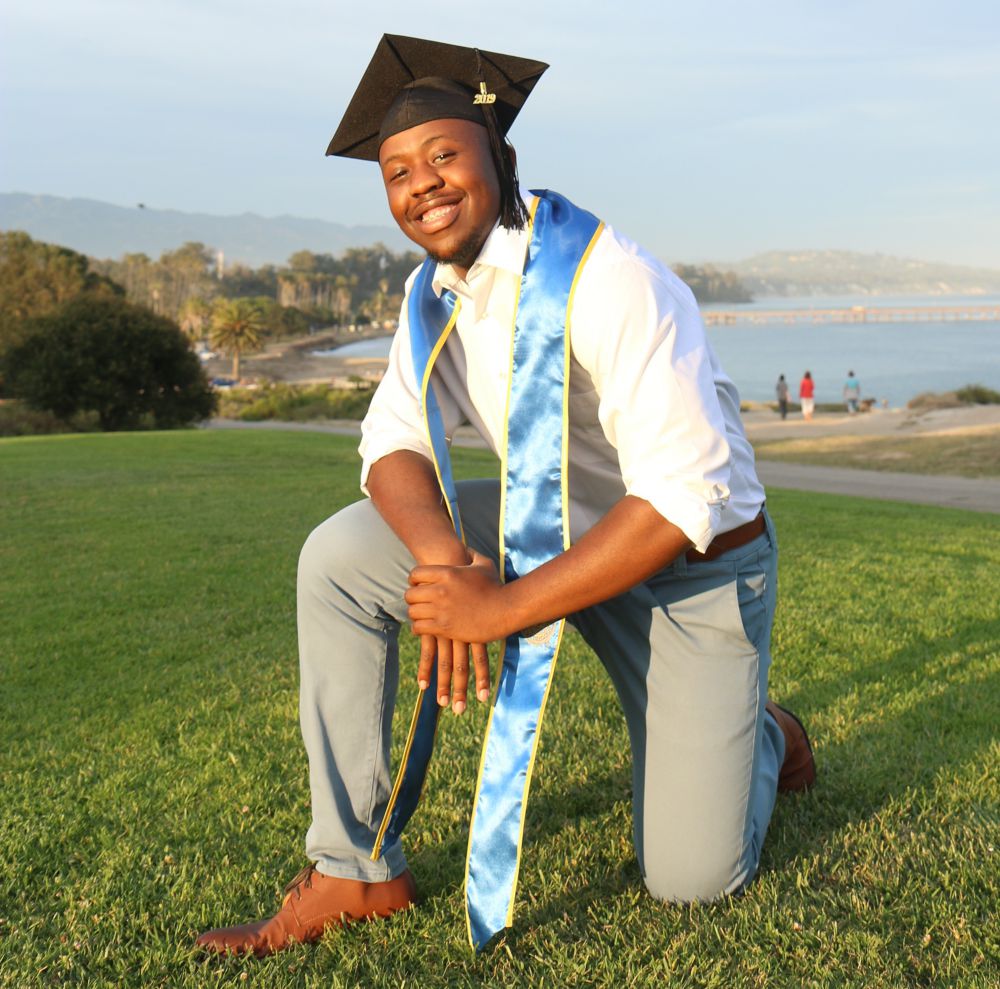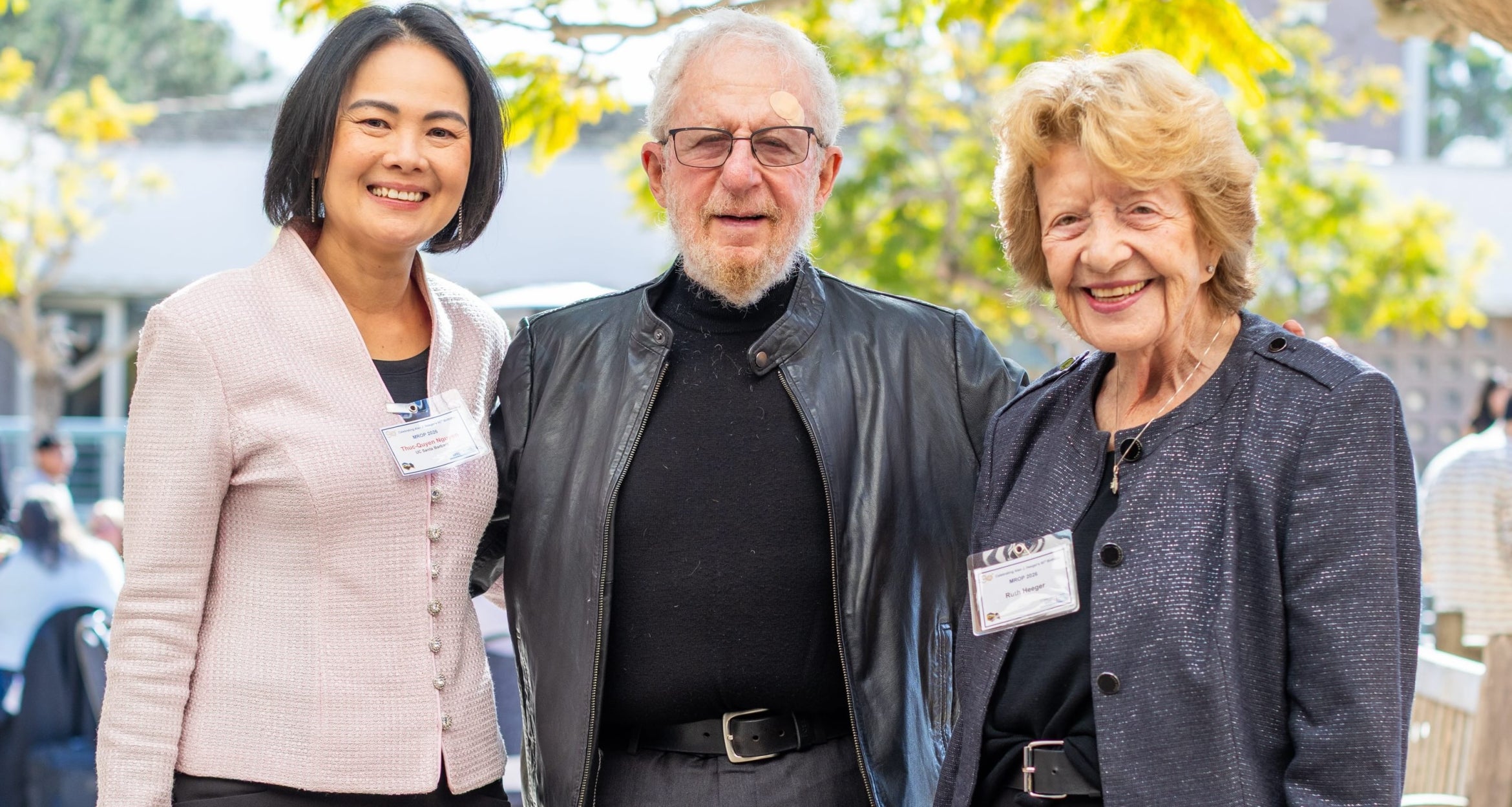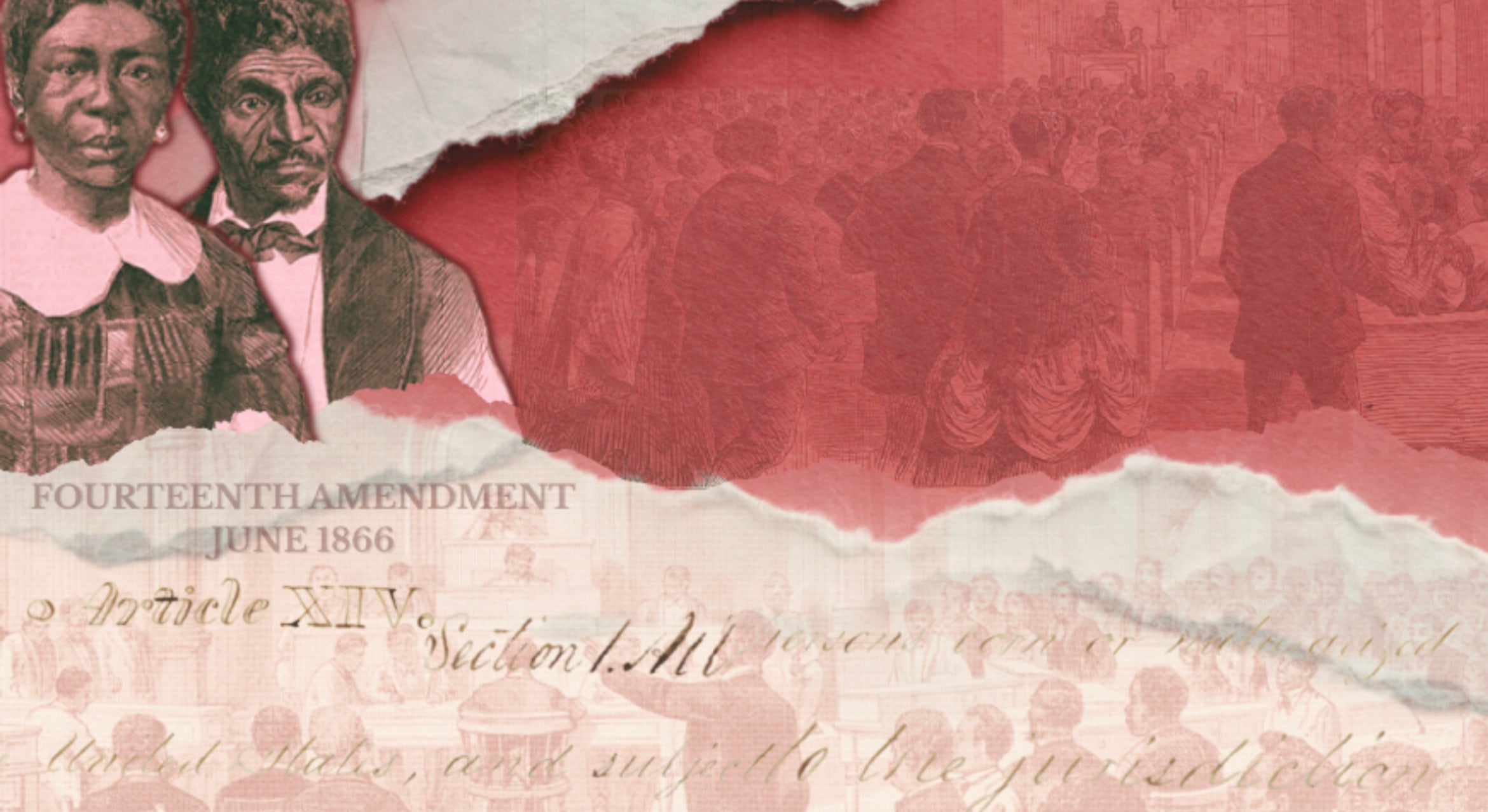
The Journey of a Lifetime
You could forgive Kuvimbanashe Chikukwa for feeling out of sorts. Born in Zimbabwe, he came to the U.S. at 14 to live with a mother he hadn’t seen in 10 years in a city, Thousand Oaks, with a striking lack of black residents.
“It was enormous culture shock,” said Chikukwa, who goes by Eddy. “I can honestly say that I only felt adjusted my freshman year of college. That was when I felt, ‘OK, I kind of get America now.’ ”
That would prove to be a bit of an understatement. In four years at UC Santa Barbara, Chikukwa has gone from struggling freshman to a leader pushing legislators in Sacramento to back a bold plan that would help thousands of college students finish their degrees in four years.
Both the California Assembly and Senate have approved $10 million in funding for Summer Cal Grants, which would provide tuition assistance to eligible undergraduate students for two summer sessions for four-year students and one summer session for transfer students.
“The only thing holding back this budget request right now is the governor’s signature,” said Chikukwa, who plans to attend law school after taking a year off to work as an intern in the state Senate.
The Summer Cal Grant initiative is just one of the many reasons Chikukwa is the 2019 recipient of the Jeremy D. Friedman Memorial Award, which recognizes outstanding leadership, superior scholarship and contributions to undergraduate life on campus.
“At UCSB I found myself, and I found my voice, I found my passion,” he said.
There was no way Chikukwa could’ve known, as little as 10 years ago, that today he’d be preparing to walk into a wide-open future in California. Back then he was living in Zimbabwe with his father after his mother, a prominent journalist, had been forced to seek political asylum in the U.S. when he was 5.
The nation in southeast Africa lurched from crisis to crisis under autocratic Prime Minister Robert Mugabe. The economy collapsed and hyperinflation made buying staples a nightmare.
“I have so many horror stories about that time,” Chikukwa said, “because you’d wake up in the morning and bread would be 50 dollars. And by the end of the night it would be 1 trillion. That’s how insane it was. Literally people would go with wheelbarrows of money to go and buy basic commodities like bread and fuel.”
In 2012 he came to California to live with his mother and older sister in Thousand Oaks, an upscale city with a population that’s 81.4% white and 1.2% African American, according to the U.S. Census Bureau. It was disorienting, but Chikukwa said the people were “amazing” and “very welcoming.”
After graduating from Thousand Oaks High School he was all set to attend UC Irvine, but his mother insisted he at least visit UC Santa Barbara. He loved the campus. “It had its own energetic, happy, friendly, outgoing vibe,” Chikukwa said. “I’m like, ‘I really like this place.’ ”
But he was still set on UCI. And then two days before he had to commit he got a call from UCSB. The man on the line told him, “ ‘We’d just really love to have you here,’ ” Chikukwa said. “I just looked at it from the perspective of, ‘If they’re willing to reach out to me right before I [commit], I really get the sense this school cares about me, and I’m a big believer in going where people want you.”
He was happy to be at UCSB, but he struggled mightily the first year and a half and wondered if he belonged. His grades were abysmal. Fortunately, he had a guardian angel named Holly Roose, now director of the campus’s Promise Scholar Program, which provides financial aid to qualified, select incoming undergraduates. Chikukwa, who worked in the financial aid office, wasn’t in the program, but Roose could see he was making rookie mistakes as a freshman.
His biggest problem was signing up for too many classes — a classic overachiever’s error.
“I just could see that Kuvimb was making some of the mistakes that a lot of students make,” Roose said. “He signed up every quarter for too many classes, while attempting to take on a lot of extra activities.
“Luckily, he responded well to direction and advice and over time he learned to trust me,” she continued. “So when I would look him up in the system each quarter and see he was signed up for 24-plus units, I’d call him in and talk him out of it and then check what else he was getting himself into to see if we needed to make any other adjustments. Now he makes really good, logical choices on his own.”
It was just what Chikukwa needed. “She reminded me what’s important, to stay focused on the goal, and making me plan out everything,” he said. “That level of accountability really brought me back on track to the point where I can say I’m proud of what I’ve done here.”
The political science major has been a very busy man indeed. He was president of Hall Council and decided he wanted to give politics a try. He ran for Associated Students Senate, didn’t like the dog-eat-dog side of it and dropped out of the race. But with his name still on the ballot, he won.
“It was really awkward,” Chikukwa said. “I’m in this situation and I’m thinking, ‘OK, do I want to be the senator, or do I want to do something else?’ ”
He spoke with Roose, who mused, “Wouldn’t it be interesting if we just brought some really amazing student leaders together just to see what they could accomplish?”
Chikukwa was game, and the Coalition for a Better UC was born. The group started out mentoring low-income students and added recruitment and retention work, which led to the Summer Cal Grant initiative.
“That literally took over what we’ve been doing,” he said. The idea was simple: Give grants to low-income students to cover summer tuition to help them graduate within four years. “It was an idea we just don’t see anyone objecting to, because this is something the [UC] regents agree on,” Chikukwa said. “I know a lot of students want to take summer courses because of my experience in financial aid. I don’t see why this would be a problem.”
The first legislative attempt to get the funding, Assembly Bill 3153, collapsed over objections by Cal State administrators. He took the lesson to heart.
“Part of that was arrogance — on my part,” Chikukwa said. “I’ll always admit that was a big learning curve. Also, really poor communications, because the CSUs had some things they didn’t like in the bill that they wanted slightly tweaked. The first thing I did after the bill failed was call them and say, ‘I’m sorry. How can we make this better?’ ”
His contrition and outreach led to a second push for the funding, this time on two tracks: as Senate Bill 461, and as a line item in a state budget sent to Gov. Gavin Newsom. The budget item now awaits his signature. Newsom has until July 1 to approve the budget.
It’s fair to say the Summer Cal Grant funding is the perfect topper on Chikukwa’s time at UC Santa Barbara, and he’s finally ready to move on.
Not long ago he was at a gathering, “just walking around the party with my friends, and we all just felt like it’s time; we’re ready to let this go,” he said. “And it was really a beautiful moment. I think that’s what this week has been helping me realize: that I am ready to let it go. I’m definitely going to miss this place, but I think it’s time. I’m ready.”



